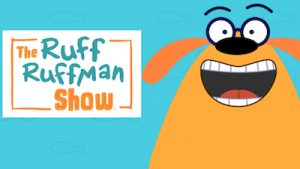Asha and her 6-year-old daughter, Zara, take deep breaths and blow onto the sails of their sail cars. The cars roll away…quickly at first before slowing to a stop. Zara cheers and exclaims, “I won! Mine went farthest!”
Asha agrees and asks, “What was your prediction?”
Zara reflects and grabs a yardstick, “Well, I thought it would go 16 inches. But it went a lot more.” She measures the distance and proudly announces, “25 inches!”
Asha is impressed at the result and asks her daughter, “What made your car go that far?”
Zara explains, “My breath is a force. It’s like the wind. It pushed on the sail and made it go.”[1]
Project Background
Asha and Zara are participating in Ruff Family Science, a project that aims to foster joint media engagement and hands-on science exploration among diverse, low-income parents and their 4- to 8- year old children. Funded by the National Science Foundation and based on the popular PBS KIDS animated character Ruff Ruffman, the project is a collaboration among public media producers at WGBH, researchers at Education Development Center (EDC), and three implementation partners: National Center for Families Learning, Kentucky Educational Television, and Alabama Public Television. Together, these partners used an iterative research-design process to create an implementation model and prototype resources that meet the needs of families with a parent enrolled in an adult education program, addressing parents as both adult learners and as caregivers who can nurture their children’s development in science. In doing so, the project’s ultimate aim is to build new knowledge about the potential for digital media to inspire and support intergenerational science learning among families.
Ruff Family Science teaches fundamental science concepts to adult learners in different types of adult education classes: English as a second language, parenting, or adult basic education. Using the Ruff model, parents are first introduced to the resources in an adult education class, and then have the opportunity to explore the same resources with their children in a facilitated family workshop and at home. This model enables parents to build their confidence while exploring science topics among peers before introducing topics to their children. The resources include:
- Videos that feature Ruff Ruffman and introduce the science topic for investigation. They include animated and live-action segments that show real families engaged in science exploration.
- Hands-on activities that use household materials and include simple instructions so families can investigate science concepts together.
- At-home tools, including a handout containing tips and key science vocabulary translated into several languages; and an app containing activities, additional videos, and a 2-player game intended to reinforce the featured science content.
- Educator supports to facilitate integration of the above materials into various adult and family education programs. They include videos, two different versions of educator guides (for adult educators and family educators), and alignment to Career and College Readiness Standards for Adult Education (CCRSAE) and English Language Proficiency (ELP) standards.
Lessons Learned
EDC conducted an initial needs assessment and led several rounds of testing at adult and family education sites across the country. EDC collected information via site visits, focus groups, educator and parent interviews, and surveys. Testing was conducted in a range of settings, including community schools, adult education programs, poverty reduction programs, and immigrant and refugee assistance programs. In addition, Concord Evaluation Group (CEG) conducted a series of adult educator focus groups, and WonderWhy Consulting conducted user experience testing of at-home materials. Below is a summary of the findings and recommendations for developers.
Educators and adult education programs
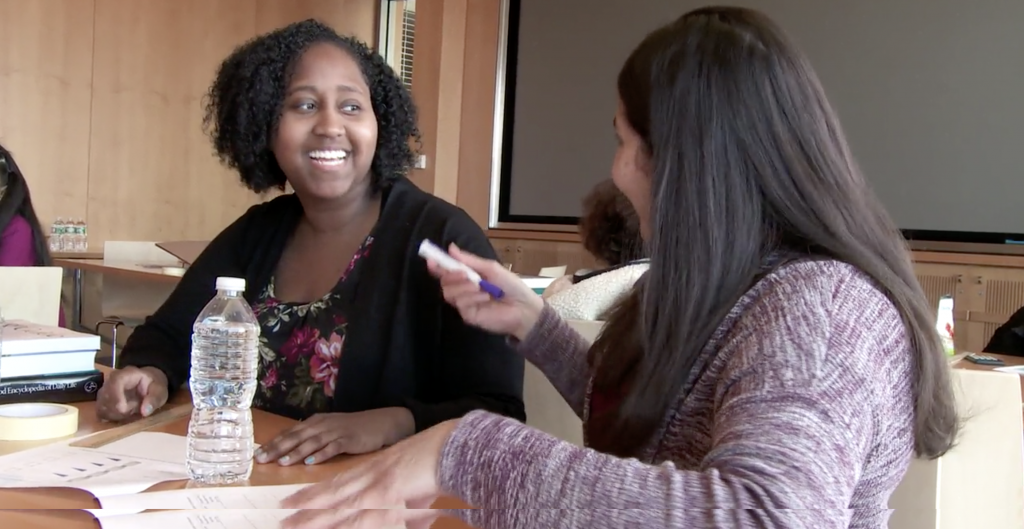
- Adult and family education programs focus their instruction on literacy, parenting, and life skills. Intergenerational learning programs were most receptive to introducing science when it can be integrated into the programs’ existing focus. Educators appreciate materials that include vocabulary support and prompts for reading, speaking, listening, and writing about science. Visual instructions for low literacy learners and vocabulary translations for English language learners were also helpful.
- Adult and family educators need resources and support to effectively integrate science into their programs. Educators often have outdated curricula, small budgets, limited background knowledge, and a lack of information about science topics. Educators need stand-alone resources that are easily accessible, free of charge or inexpensive, and use materials that are easy to find.
- Educators are enthusiastic about teaching science but need training. Many adult and family educators have limited to no experience teaching science. However, they are interested in attending STEM-related trainings, providing STEM activities and materials to their students to use in class and at home with their children, and inspiring a love of science in their adult students. Educators also expressed interest in receiving support for teaching with media. Therefore, instructional materials should include a variety of educator training and supports to help them teach science with media: videos, webinars, and versions of educator guides that are specific to particular audiences.
Adult learners
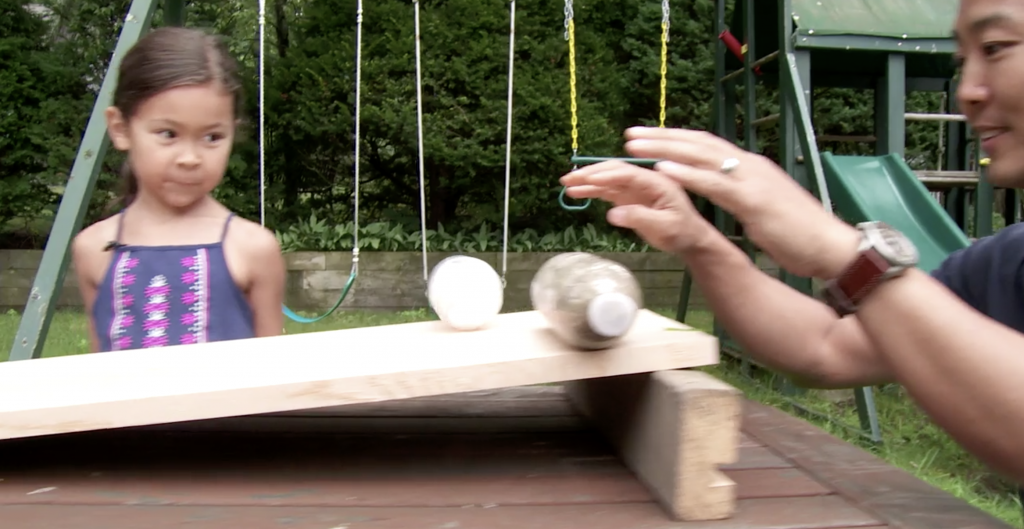
- Parents build confidence and are more prepared to teach science to their children when previously introduced to science concepts in adult education settings. Many adult learners have low literacy levels, special needs, or limited education. They are often intimidated by science and worry that they will make mistakes, get the wrong answer, will not learn as quickly as their children, or not grasp the concepts. However, they believe science education is important for themselves and their children and want to help their children learn science at home. Programs should give parents an opportunity to complete the hands-on activities in an adult education setting prior to engaging with their children at home. This approach enables them to learn the content, vocabulary, and practices needed to support their children and build their own confidence.
- Resources should expand adult learners’ perception and interpretation of science. Parents often don’t realize that science is about is about hypothesizing, wondering about their surroundings, and testing their ideas. Science materials should enable parents and their children to make predictions, observe, record data, discuss concepts, and use scientific vocabulary, in an informal and fun environment. This approach encourages families to “think scientifically” about the things they do every day, such as cooking or riding a bike.
- Materials should emphasize hands-on, collaborative learning. Adult learners enjoy engaging in hands-on learning experiences and gameplay. They prefer to work collaboratively with their peers and their children rather than work independently or compete against others.
- Parents recognize the value of playing with their children as a way to help them learn. However, time is a big constraint to engaging with their children. Parents must juggle jobs with irregular schedules or unconventional hours, household chores, and homework support. Multigenerational science activities must be highly valued by families. They should be fun, hands-on, engaging, playful, and effective if parents are to prioritize and include them in their lives.
Family Learning with Media
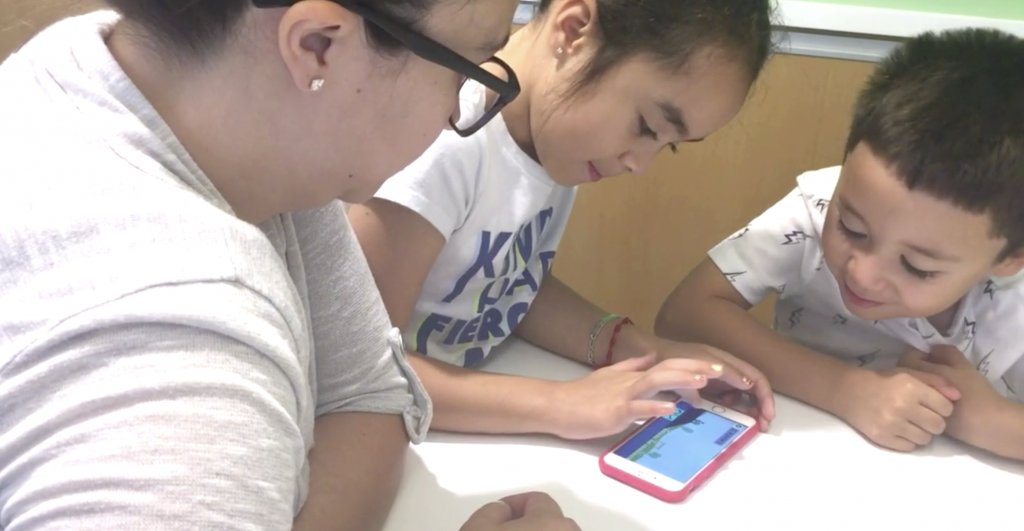
while reinforcing science concepts.
- Playful and relatable videos can set the stage for learning. Families and adult learners respond enthusiastically to videos that mix humor and science learning. When creating videos, depict real families from a variety of cultural and ethnic backgrounds and show them exploring science in ways that feel natural and authentic.
- Translation should be approached strategically. Although intergenerational science programs serve a large proportion of non-native English speakers, they use English-language materials almost exclusively to support English language and literacy development. Translating science keywords into multiple languages may be more helpful than translating complete videos or activities into other languages.
- Digital games can support families in exploring science at home. Access to and familiarity with technology varies greatly among families in intergenerational learning programs. However, educators and families enjoy using online games and apps to extend family science exploration at home. Games can scaffold play for beginning science learners by offering hints or levels according to players’ ability.
In Summary
The Ruff Family Science model shows that using an intergenerational approach to teach fundamental science concepts can be effective on many levels. Science is rarely taught to adult learners enrolled in ESL, parenting, or basic skills classes; however, when integrated into existing programs, understandings about science and enthusiasm toward science learning can grow. When science concepts are taught using a variety of media–animated and live action video, engaging hands-on activities, online games, and printed resources–adults gain confidence in their own abilities and are excited to bring science home and try it with their children. By engaging in science together, parents not only strengthen the bond with their children, they also teach them science practices and life skills…to hypothesize, question, experiment, collect data, and wonder about the world.[2]
[1] This is a fictional example, based on conversations, interactions, and observations during testing.
[2] This material is based upon work supported by the National Science Foundation under Grant No. 1713494. Any opinions, findings, and conclusions or recommendations expressed in this material are those of the authors and do not necessarily reflect the views of the National Science Foundation.
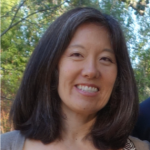 Lisa Hamanaka Ellsworth has over 25 years of experience in education, both in the classroom and in educational publishing, and holds a master’s degree from Harvard University. She currently works as a digital producer at WGBH Educational Foundation where she contributes to public media projects in science and engineering, computational thinking, and social studies. Lisa also freelances as an instructional designer and content developer, working with industry leading clients such as FableVision Studios and iCivics.
Lisa Hamanaka Ellsworth has over 25 years of experience in education, both in the classroom and in educational publishing, and holds a master’s degree from Harvard University. She currently works as a digital producer at WGBH Educational Foundation where she contributes to public media projects in science and engineering, computational thinking, and social studies. Lisa also freelances as an instructional designer and content developer, working with industry leading clients such as FableVision Studios and iCivics.
